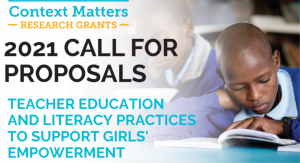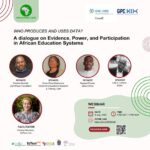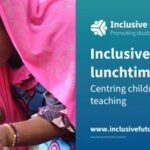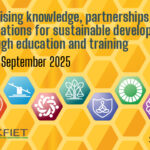Literacy Practices in Local Context and Girls’ Empowerment in Teacher Education
CODE is pleased to announce that we are partnering with the International Literacy Association (ILA) and its global network of scholars, researchers, and literacy educators to bring greater support and expertise to the Context Matters Research Grant program. ILA will join the Context Matters International Advisory Committee; recommend members of their International Development in Africa Committee as Context Matters grant jurors; and tap into their grassroots network of educators from across Africa to disseminate news of the grants and promote access to the completed research.
Together, CODE and ILA will offer up to five research grants of a maximum CAN $10,000 each.
We invite researchers, academics and educators who are resident in the countries listed below to submit proposals to CODE at ContextMatters@code.ngo by August 1, 2021.
Eligible countries include: Angola, Benin, Botswana, Burkina Faso, Burundi, Cameroon, Cape Verde, Central African Republic, Chad, Comoros, Cote D’Ivoire, Democratic Republic of the Congo, Djibouti, Equatorial Guinea, Eritrea: Eswatini, Ethiopia, Gabon, Gambia, Ghana, Guinea, Guinea-Bissau, Kenya, Lesotho, Liberia, Madagascar, Malawi, Mali, Mauritania, Mozambique, Namibia, Niger, Nigeria, Republic of the Congo, Rwanda, Sao Tome and Principe, Senegal, Seychelles, Sierra Leone, Somalia, South Sudan, South Africa, Sudan, Tanzania, Togo, Uganda, Zambia, and Zimbabwe.
The Context Matters Research Grants are designed to:
- Support work by African scholars and researchers addressing issues identified in collaboration with the African literacy and teacher education communities.
- Advance research in Africa by Africans in ways that are responsive and respectful of participants and their communities.
- Strengthen the research capacity, knowledge, and recommendations of those working in the African context.
- Fund research initiated, designed, and undertaken by local teams.
- Foster international partnerships and alliances that bolster Africa’s ability to meet the UN Sustainable Development Goals in the areas of education and gender equality.
- Build a body of evidence that can be used to support education policy recommendations at local, regional, or national levels.
In 2021, CODE and ILA are primarily interested in research projects that relate to one or more of the following:
- advancing local literacy practices;
- advancing context specific ways of knowing;
- the intersection between literacy, education, and girls’ empowerment;
- the role that pre-service teacher education and in-service professional development plays in strengthening the educational opportunities for girls and vulnerable populations;
- the relationship between the school, the home, and the community and the role this plays in strengthening culturally relevant literacies;
- the impact of digital literacies as well as the use of technology in teacher education and classroom learning;
- the factors and/or interventions that contribute to reducing barriers to quality education for women and girls: with disabilities; in fragile, conflict, refugee and crisis situations; and/or in relation to the impact of the COVID pandemic.
To Apply For A 2021 Research Grant Download The Documents Here




